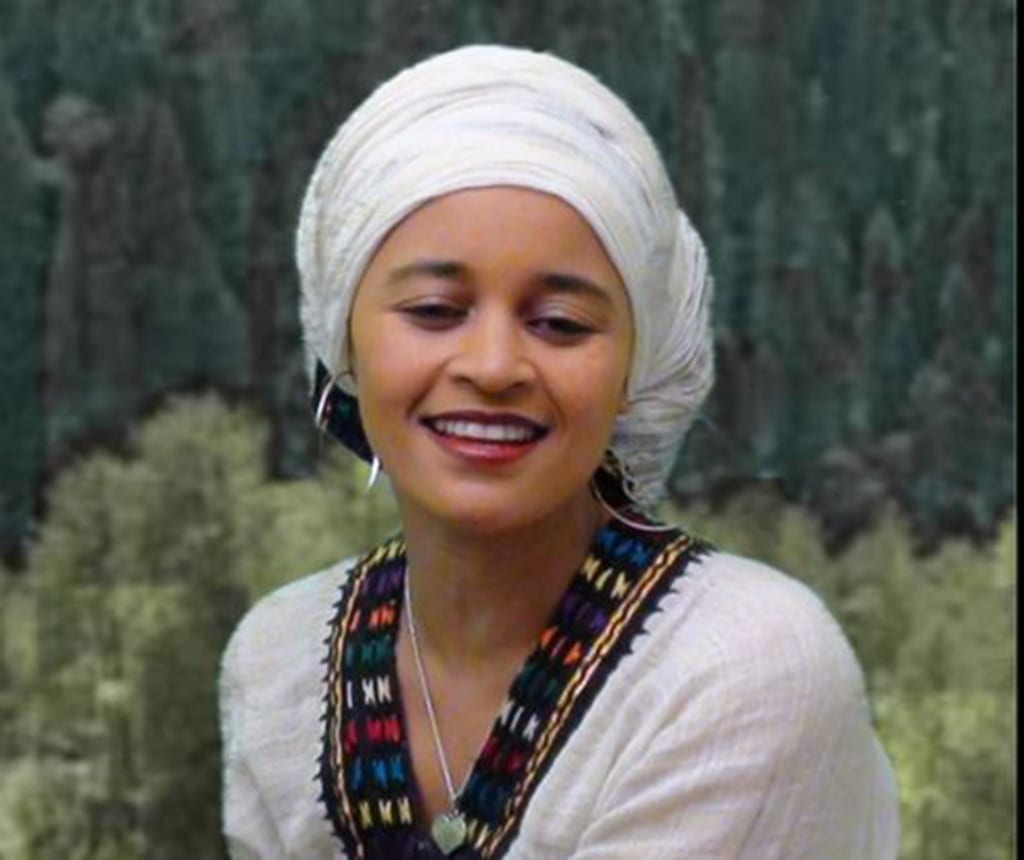Part of the grand Docklands redevelopment of the 1980s, and just a stop away from Canary Wharf, the ‘Culture Space’ at Canada Water could not be easier to get to. Step out of the Jubilee/ Overground station, and it is right next door. It is currently hosting the 13th Annual London African Music Festival, in which artists from different parts of the Continent have one night each to display their various talents. Last night was the turn of Hanisha Solomon from Ethiopia.
There was a dramatic build-up to her entrance in the 150-seat auditorium as her small band – guitar, bass, drums, kebero ( a sort of bongo), and masenqo (a one-stringed lute played with a bow) – launched into a distinctive sound described in the programme as combining “Amharic musical scales with urban grooves from Africa and America.”. Hanisha herself certainly made an impression when she came on, holding a big bouquet of flowers. She is stunning to look at (if one can say that after the Charlotte Proudman controversy), and she immediately struck up a rapport with the audience, throwing out bunches of the flowers, which were eagerly caught. She soon had the audience, most of whom clearly hailed from the Horn of Africa, getting out of their seats and dancing with her to her more up-tempo numbers.
It was not just the Amharic speakers in the audience who were tapping their feet or jiving on the floor. But for someone brought up with Western pop and classical music, there is a difficulty with Ethiopian musical scales. The modal system is pentatonic, with different intervals from the Western tradition. Hanisha Solomon has a vibrant personality and a lovely voice, but the immediate appeal of her music will be to people of Ethiopian and Eritrean origin. For others, the experience may be more interesting than pleasurable. The songs are in the Amharic and Oromiya languages, and although Hanisha explained that one of them was a love song and that another was a protest against dictatorship and kleptocracy in Africa – alas, a perennial complaint – one could have done with an introduction to what the others were about.
In fine, this is a great show for people who originate from the Horn of Africa, for ethnomusicologists and for aficionados of World Music. For Westerners of less adventurous musical tastes, it will have less instant appeal.

